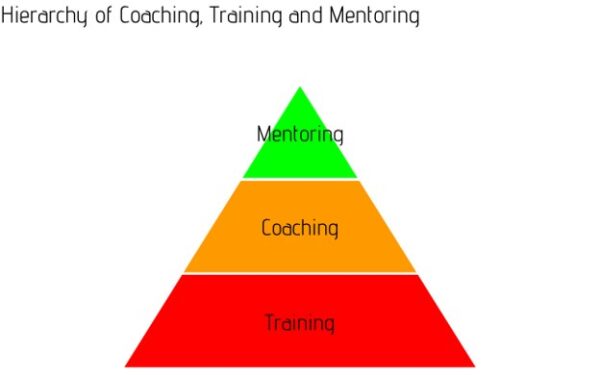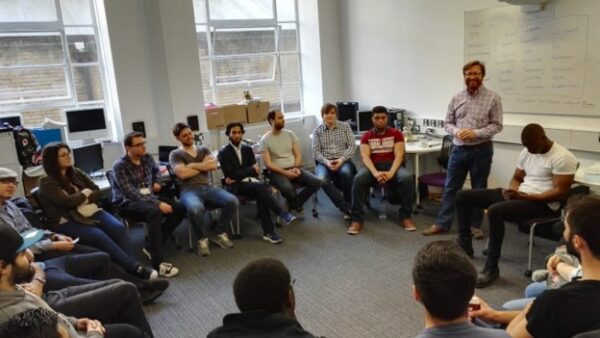Have you ever tried to change the behavior of a successful leader that had no interest in changing? Were you the individual given the task to bridge the gap between the successful leader and disgruntled employees? We have heard of leaders who transform the masses, but how can a school district assist a sincere effort for educational leaders to grow, develop, and improve. Change is inevitable, yet how one responds to changes in leadership is essential. The world is continuously changing, and educational leaders at all levels must learn how to adapt, pivot, and adjust in a matter of minutes.
Professional education development needs to expand beyond staff meetings, workshops, leadership conferences, and weekend “team-building” retreats. It is not to say that these types of actions are not effective; there is just more needed to ensure change is implemented. All leaders need development. In the words of the famous football coach John Wooden, “It is what you learn after you know it all that counts.” Development for successful school leaders does not have an age limit, years of experience requirement, or end date.
Leadership development gives leaders and organizations a competitive edge, supports the world’s rapid changes, and addresses challenges in an organization’s culture. Research at the Center for Creative Leadership has shown that for experiences to result in personal development, the development must present a challenge accompanied by assessment and support. School systems understand the power of assessments and data-driven instruction for students. The process involves accountability and follow-up to ensure that the change will last.

This Photo by Unknown Author is licensed under CC BY-SA
Executive or Leadership coaching is a professional development tool that can aid in school leadership development. Leadership or executive coaching has developed top executives, leaders, and managers in organizations in the last decade. Executive coaching is the process of one-on-one dialogue that empowers individuals to use self-creation, self-actualization, and self-efficacy. The coaching process helps personal and professional development because it is committed to supporting the coachee as they excel. Coaching is not a punitive assessment measure nor an evaluation tool used to make employment decisions.
Coaching is functional in transferring skills and knowledge from one employee or leader to another. This shift is intended to unveil an individual’s potential to maximize personal development and performance. James M. Hunt’s 2004 research shows that leaders who took part in effective one-on-one coaching were more skillful, confident, sure of direction, self-aware, and better understand others’ perspectives. The International Coaching Federation Core Competency Model has literature that shares the components of a successful coaching relationship. The competency model is based on evidence collected from more than 1,300 coaches across the world. It is a more profound shift from mentoring and supporting leadership in their evolvement. School districts spend millions of dollars on teacher development and student development, but what about the ones that lead the teachers and the students.
Coaching is professional development needed for principals, central office, superintendents, and board members. Yes, because elected or appointed school board members do not have a background in education but are assigned to create and patrol the district’s policy and guidelines. Everyone that is given the task of leading a school district can benefit from leadership coaching.
Coaching is a non-threatening way to support the self-directed process of change for successful leaders. The coaching relationship entails a foundation or structure that involves personal development, and this foundation is rooted in trust and accountability. The core elements of coaching; (1) it is goal-directed, (2) there is coaching-friendly context, (3) the leader participates in their learning, (4) the organization gives time and support for the relationship, (5) The coaching dialogue gives the leader time to reflect on the effectiveness of actions, (6) feedback from beyond the self, and (7) the opportunity to continue the learning process, along with appropriate support.

This Photo by Unknown Author is licensed under CC BY-SA
Leadership coaching is a developmental partnership between two people (a coach and a leader) that focus on self-selected professional or personal goals that align with organizational aims. The coaches’ primary purpose or focus is to help develop the leader’s leadership strengths, emotional intelligence, communicational skills, and team engagement. Coaching supports “new thinking,” which will lead to a continuous improvement process for the leader. The recent “pause” in the educational learning process has caused school leaders all over the globe to rethink the delivery of successful academic instruction.
Effective leadership coaching works. How can one know if leadership coaching is effective? Coaching sessions have proven to help leaders and employees become open and tolerant to different views and increase trust and respect. Individuals that receive the benefits of coaching are encouraged to think about how they can turn the experience into a skill set that can benefit others within the organization. The goal is for both the leader and the school system to benefit from the coaching relationship. Coaching is connected to performance improvement; it is the perfect strategy for progressing leaders: leaders who have received practical executive coaching note that it is satisfying, helpful, and better performance.
It is time for school districts to revamp the professional development structure and incorporate leadership coaching for the executive staff. All leaders are a work in progress, regardless of age, ethnicity, or range of success. Knowledge is power, and wisdom is the essence of knowing how to obtain and implement such knowledge. Coaching will encourage teamwork, develop leadership, improve leaders’ communication skills, and show the school district’s value in supporting leaders.

